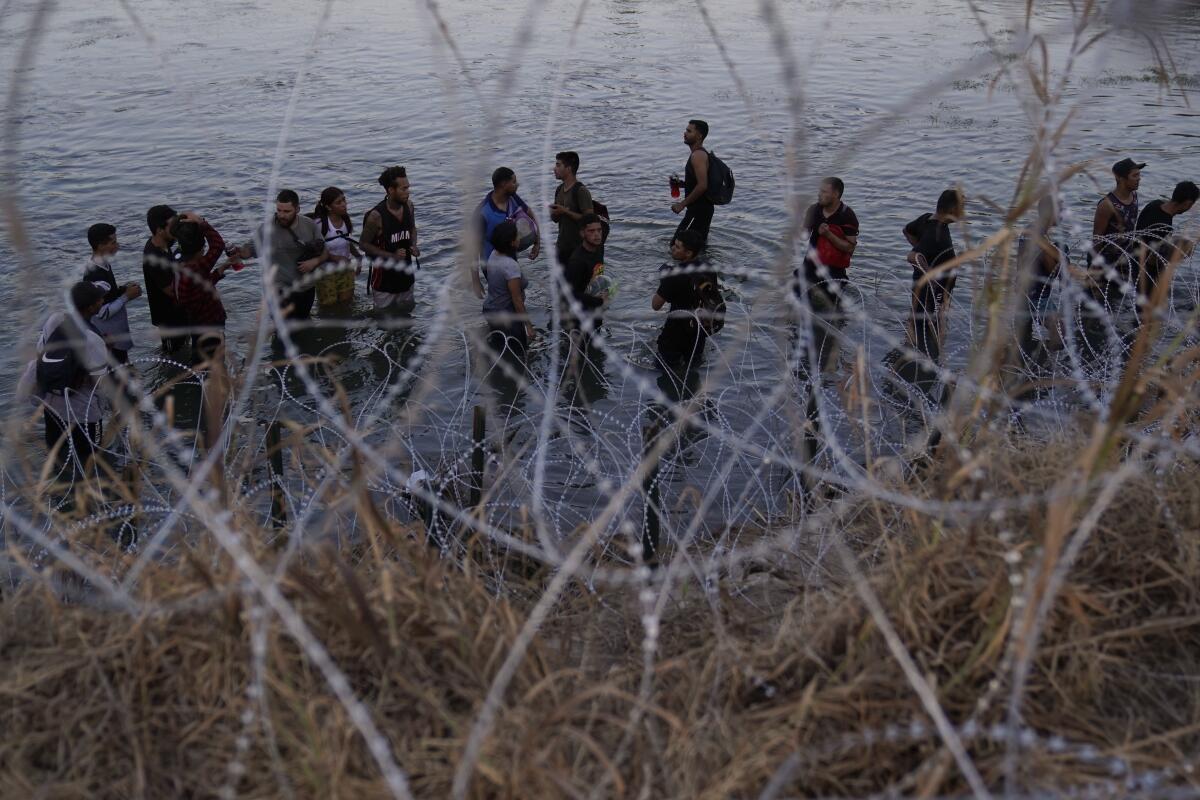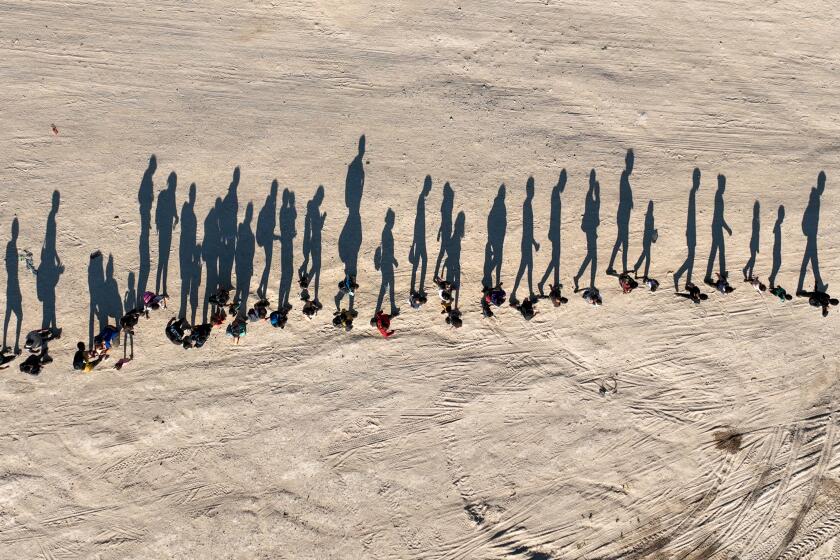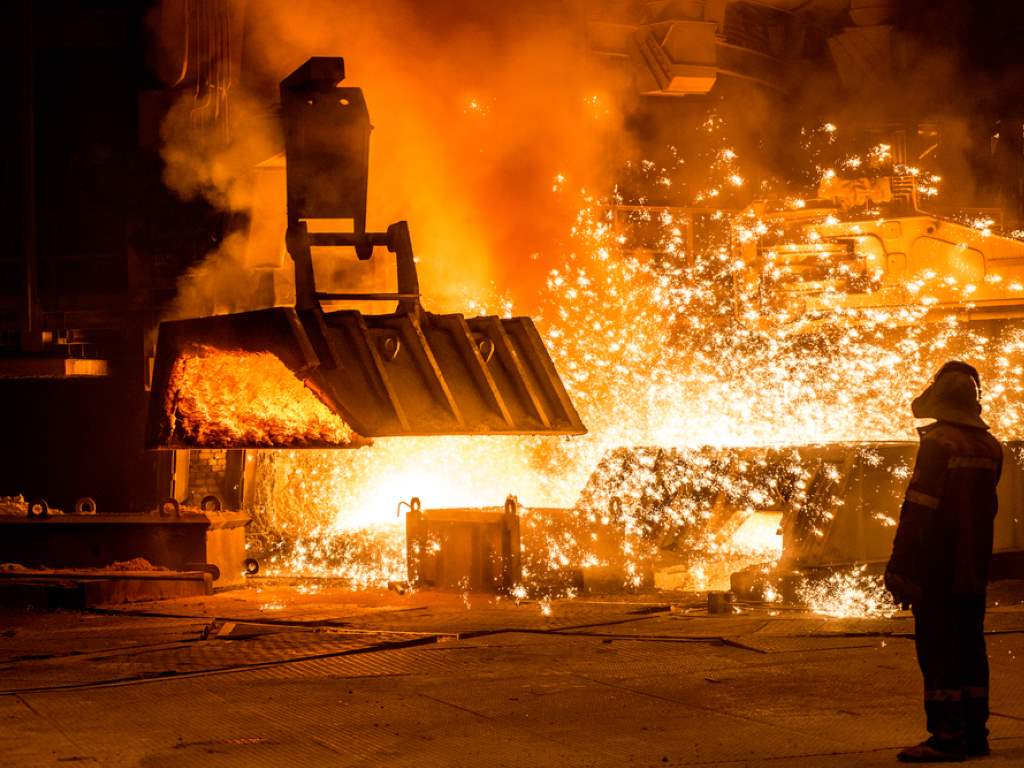President Andrés Manuel López Obrador accused Abbott of signing a harsh immigration law in order to be in the running as a Republican vice presidential candidate.
Dec. 19, 2023
By Suzanne Gamboa
Mexico's President Andrés Manuel López Obrador slammed Texas Gov. Greg Abbott for signing a law that allows peace officers to arrest people they think entered the country illegally, accusing him of just wanting to be the Republican nominee for vice president.
López Obrador, often referred to as AMLO, dispensed the harsh criticism of Abbott at a news conference on Tuesday. He also lectured him on history.
“He wants to be the Republican Party’s vice presidential candidate. In the United States he wants to gain popularity with these measures,” López Obrador said after he was asked about the new Texas law. Abbott signed the law on Monday.
“You are not going to win anything,” he warned Abbott. “On the contrary, he will lose sympathy because in Texas there are many Mexicans, many migrants. He forgets that Texas was from Mexico, like 10 states of the American Union.”
López Obrador vowed to defend "our countrymen and migrants" and said Mexico already has a challenge to the law under way.
ACLU of Texas suing state for law allowing arrest of migrants who illegally cross border
The new law makes illegally entering the country a state crime, a misdemeanor. A peace officer, which is broadly defined and can include such people as local police officers and security officers of the state medical board, can inquire about a person's citizenship and immigrant status if they think they have entered the U.S. illegally. If so, a magistrate can order them out of the country.
López Obrador said that Abbott has forgotten that the U.S. was "consolidated and strengthened" thanks to migrants of the world. He also admonished Abbott on religious grounds.
"He forgets that in the Bible it says that you should not treat strangers badly ... This man knows what he has done," he said.
He added more criticism, chastising Abbott for busing immigrants to New York, Chicago and the residence of Vice President Kamala Harris in Washington, D.C., in winter and without coordinating with the cities that have been accommodating of the immigrants, many of whom have pending asylum requests.
Florida Gov. Ron DeSantis, a GOP presidential candidate, also signed hard-line immigration laws that led immigrants, workers and their families — some of them U.S. citizens or legal residents — to leave that state.
López Obrador warned Abbott that he will face the same political fate as DeSantis, also a Republican.
"He (DeSantis) was ahead in the polls. He was not ahead of Trump, but he was in second place and he started with those measures and fell," he said.
Trump has been polling ahead of all other GOP candidates heading into the Jan. 15 Iowa caucuses. DeSantis was once considered Trump's strongest challenger, but his campaign has faltered and his bid is at risk if he does not have a strong showing in Iowa.
"This is what will happen to the governor of Texas with those decisions," López Obrador said.
Abbott has been running his own immigration operation in Texas for years, using Texas Department of Public Safety troopers, the state's highway patrol, to police the border, stop drivers to check for people illegally here and arrest people for criminal trespassing when they cross private land.
He has been holding those arrested in prison units converted to state immigration jails. Those held are turned over to federal officials for deportation, but authorities have been forced to release many of the migrants after counties failed to charge them within the period of time dictated by law. In some cases, they have been sent for deportation despite pending immigration or asylum claims.
Abbott had to back down from another confrontation with Mexico recently. He was forced to remove giant buoys he ordered placed in the Rio Grande as a crossing deterrent. Experts showed they were in Mexico's territory.
In addition to the illegal entry arrest law, Abbott has signed a law providing $1.5 billion to build more border wall, adding to some $10 billion already spent on his state-run border-immigration operation.
Groups challenge law as unconstitutional
Abbott has been criticized for usurping immigration enforcement authority that pertains to the federal government; the illegal entry law, as well as parts of his operation, are seen as an attempt to test that federal authority in court.
The American Civil Liberties Union and the Texas Civil Rights Project filed a lawsuit Tuesday challenging the law as unconstitutional.
The complaint argues that the law violates the Supremacy Clause of the U.S. Constitution by authorizing Texas judges to order a person's deportation, regardless of whether a person is eligible to seek asylum or other humanitarian protections under federal law, the ACLU said in a statement.
Anand Balakrishnan, senior staff attorney at the ACLU’s Immigrants’ Rights Project, said the law is dangerously prone to error and will disproportionately harm Black and brown people regardless of their immigrant status.
Hispanics in Texas outnumber whites, according to the U.S. Census Bureau.
The law also may run into obstacles in some communities. Some counties and law enforcement agencies have said enforcing the new law could be costly to their communities.
In Arlington, Texas, between Dallas and Fort Worth, the police department said that the federal government is better equipped to handle immigrants and that immigration remains a federal issue, The Associated Press reported.

Migrants wait to climb over concertina wire after they crossed the Rio Grande and entered the U.S. from Mexico in Eagle Pass, Texas.
(Eric Gay / Associated Press)
BY ACACIA CORONADO
ASSOCIATED PRESS
AUSTIN, Texas —
Civil rights organizations on Tuesday filed a lawsuit challenging the constitutionality of a new Texas law that would allow police to arrest migrants who cross the border illegally and permit local judges to order them to leave the country.
The lawsuit, filed in federal court in Austin, argues that the measure that is set to take effect in March is unconstitutional because the federal government has sole authority over immigration.
The American Civil Liberties Union, its Texas branch, and the Texas Civil Rights Project sued less than 24 hours after Republican Gov. Greg Abbott signed the measure during a ceremony on the U.S.-Mexico border in Brownsville.
ADVERTISEMENT
The civil rights groups filed the lawsuit on behalf of El Paso County and two immigrant aid groups seeking to block enforcement of the measure, known as Senate Bill 4, and declare it unlawful. “S.B. 4 creates a new state system to regulate immigration that completely bypasses and conflicts with the federal system,” the lawsuit states.
The lawsuit was filed against the head of the Texas Department of Public Safety, or DPS, whose troopers could arrest migrants, and the El Paso County district attorney, whose office would potentially prosecute cases in that border community.

Texas governor signs bill that lets police arrest migrants who enter the U.S. illegally
A DPS spokesperson declined to comment in an email Tuesday, citing the pending litigation. Abbott’s office did not return an email seeking comment and the district attorney’s office had no immediate comment.
Abbott and other Texas Republicans who support the measure say President Biden’s administration isn’t doing enough to control the border.

According to the lawsuit, DPS Director Steve McGraw told lawmakers that his agency estimates approximately 72,000 arrests will be made each year under the measure.
The new law allows any Texas law enforcement officer to arrest people suspected of entering the country illegally. Once in custody, they could either agree to a Texas judge’s order to leave the U.S. or be prosecuted on misdemeanor charges of illegal entry. Those who don’t leave could face arrest again under more serious felony charges.
Opponents have called the measure the most dramatic attempt by a state to police immigration since a 2010 Arizona law — denounced by critics as the “Show Me Your Papers” bill — that was largely struck down by the U.S. Supreme Court. The Texas lawsuit cites the 2012 Supreme Court decision on the Arizona law, which stated the federal government has exclusive power over immigration.
“The bill overrides bedrock constitutional principles and flouts federal immigration law while harming Texans, in particular Brown and Black communities,” Adriana Piñon, legal director of the ACLU of Texas, said in a statement.
Earlier Tuesday, ACLU affiliates in Oklahoma, New Mexico, Arkansas, Louisiana, Arizona, Texas, and San Diego and Imperial Counties in California issued a travel advisory warning of a possible threat to travelers’ civil and constitutional rights violations when passing through Texas.
Other steps Texas has taken as part of Abbott’s border security efforts have included busing more than 65,000 migrants to cities across America since August 2022 and installing razor wire along the banks of the Rio Grande.





